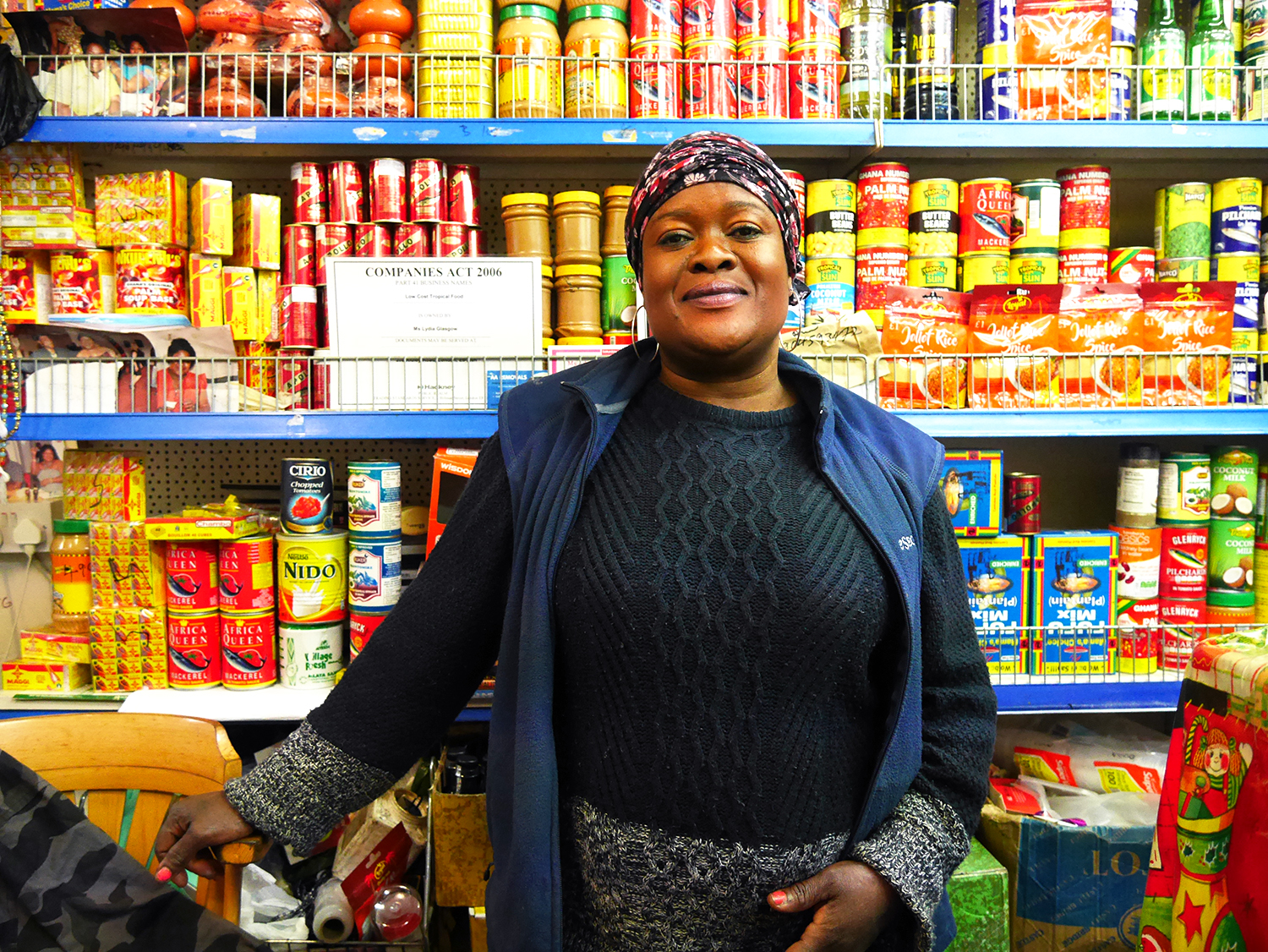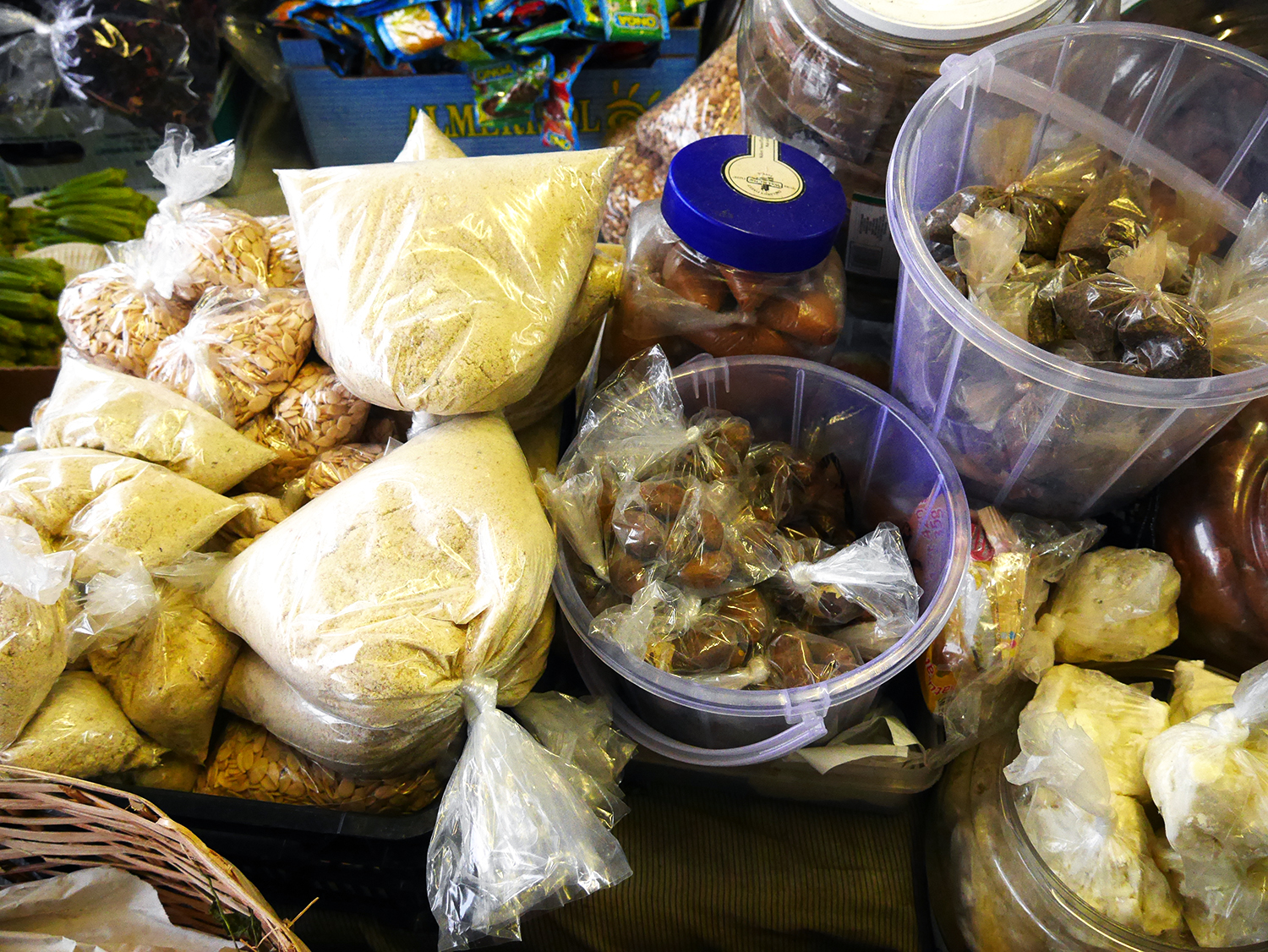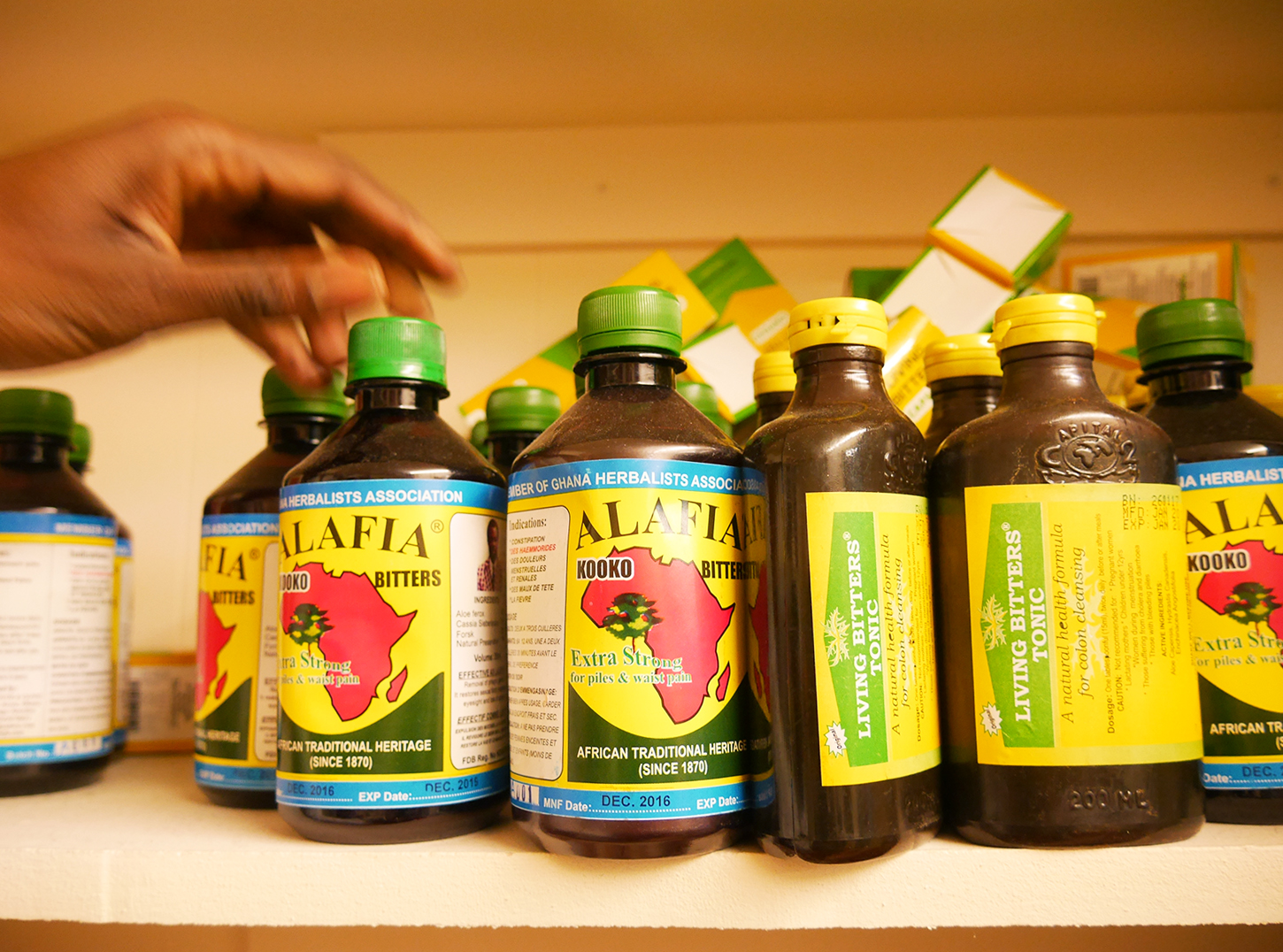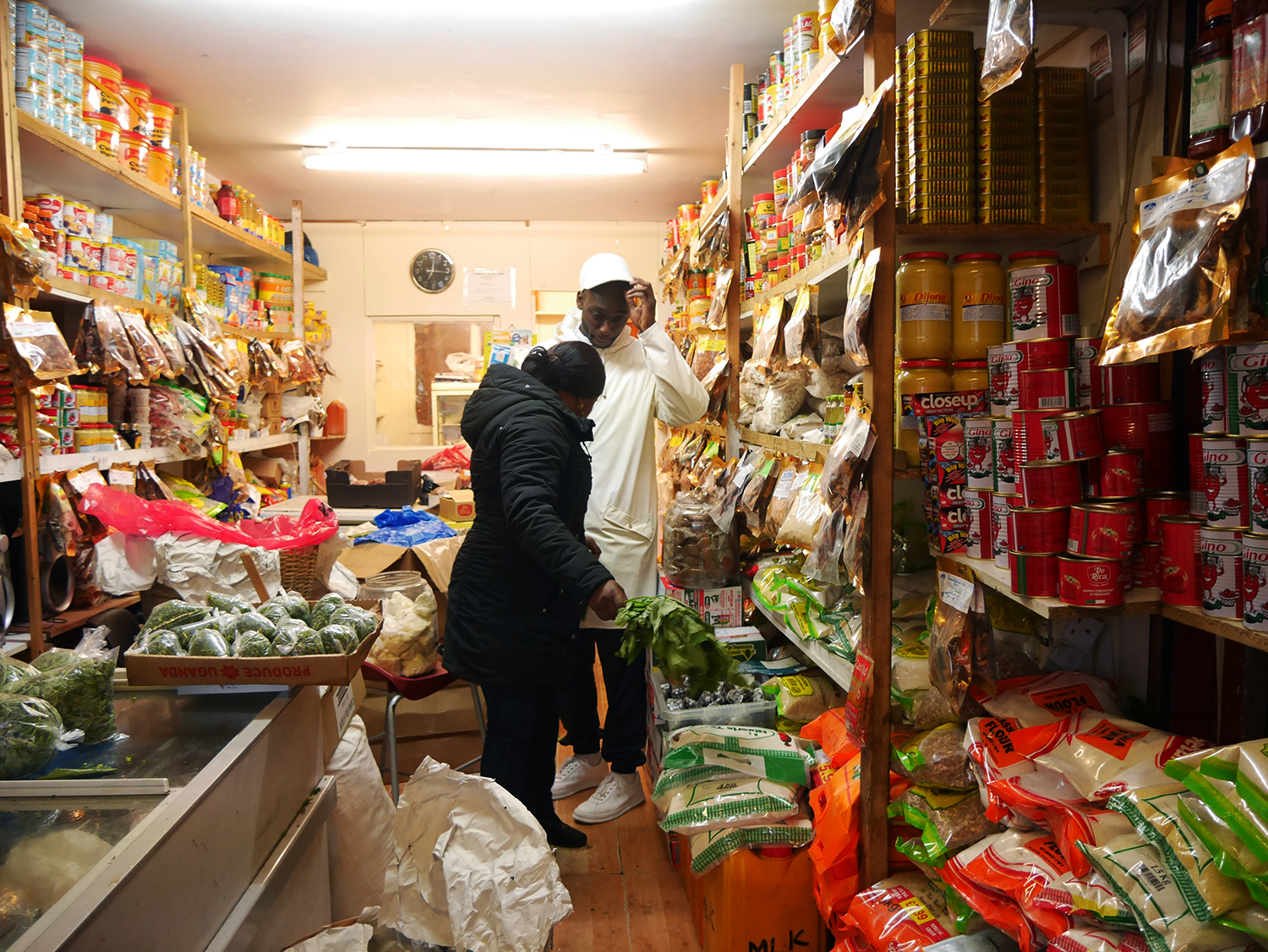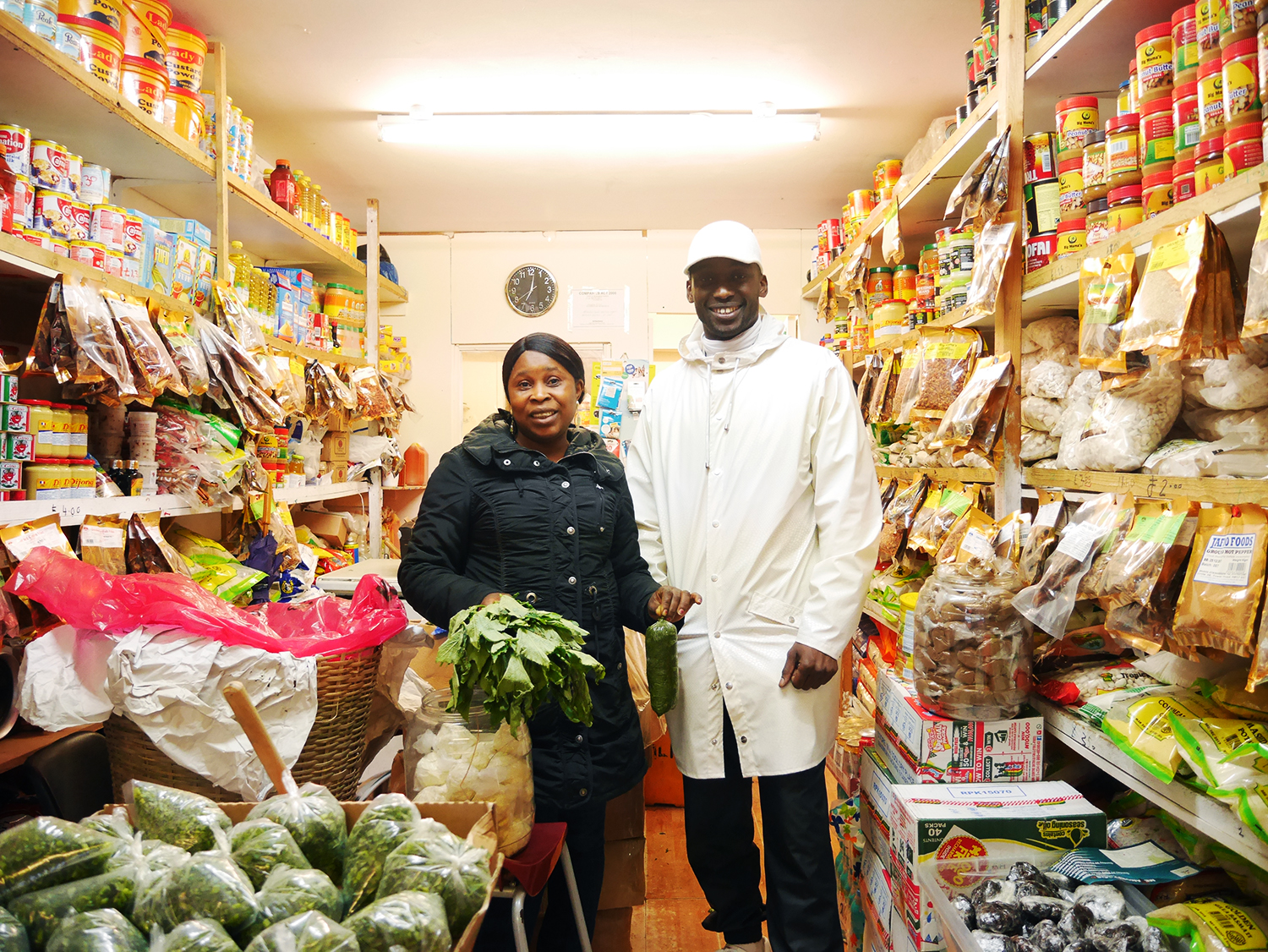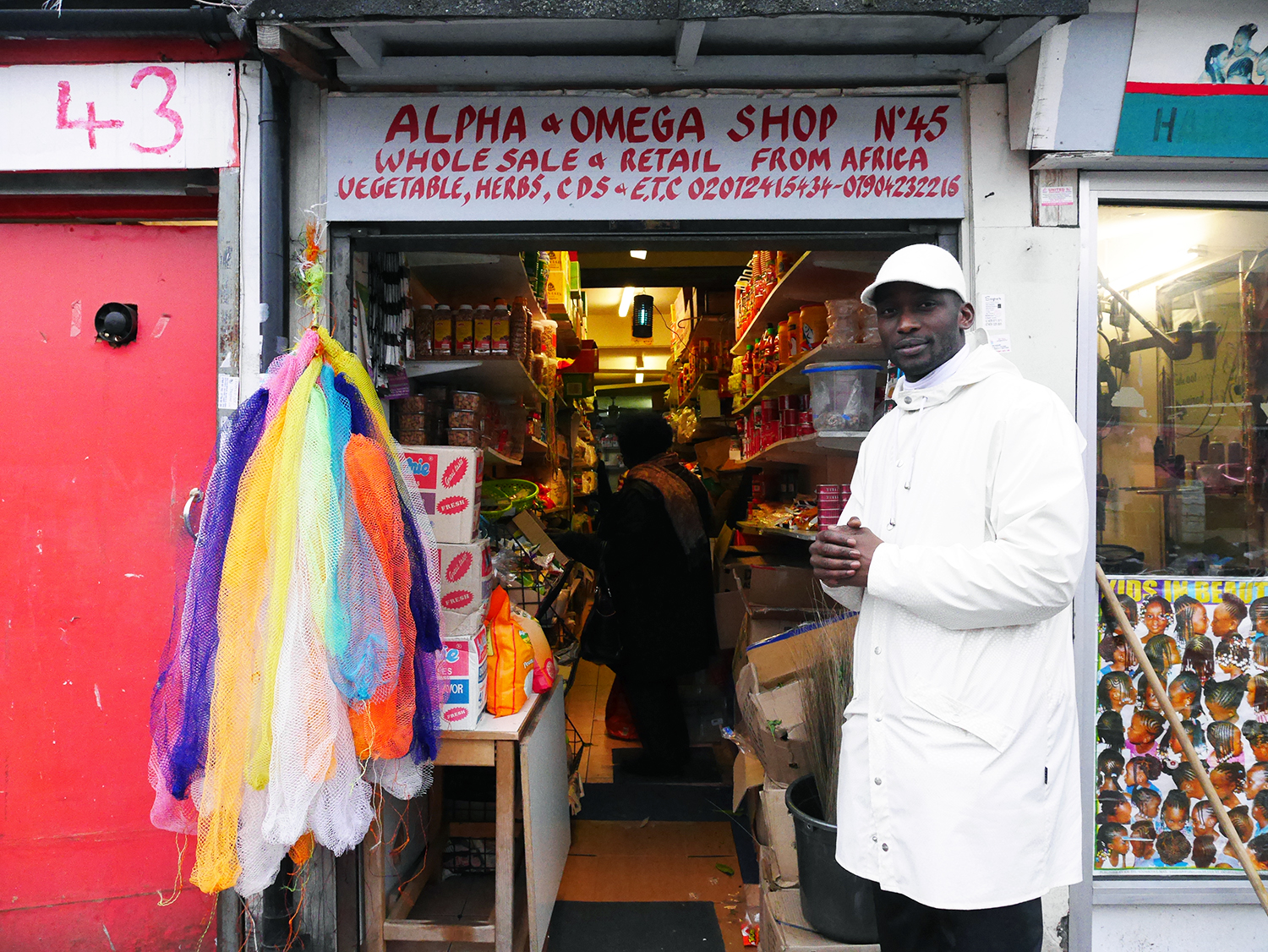“The way African people do things — we see worth, not just in exchange but in the person.”

Entrepreneur Kollier Din-Bangura on valuing human spirit and storytelling as social capital
8 min read /
Text and Photography by Rosanna Vitiello
Entrepreneur Kollier Din-Bangura is the very definition of a ‘Local Legend.’ We meet him sat outside his East London gallery, The Invisible Line, welcoming the neighbourhood inside. Which makes for a tough interview as barely a person passes without stopping in to talk. Call it character, call it charm, but we think Kollier has a gift for engaging people and building local enterprise.
Born in Sierra Leone and brought up in South London, Kollier aims to cross that invisible line to bridge an understanding between clientele of all origins and backgrounds. Having established cafes, salons, clubs, bars and galleries across London, he’s living proof that on-the-ground storytelling can make economic and social sense.
Concerned with the tides of regeneration in the Dalston neighbourhood where he lives, Kollier’s looking to give a fresh voice to the black-owned businesses along Ridley Road. Operating for generations, many have come to define the area but are face the threat of rising rents and re-development. Establishing ‘Thee %’, a foundation to support and re-interpret their trade, his aim is to keep these African and Caribbean businesses relevant to the changing communities around them.
Kollier, tell us about your background and how it influences what you do now?
I was born in Freetown, Sierra Leone. I came to London when I was about nine years old. My early childhood was all about freedom. I grew up in a really open community which was liberating. And that's the way, I suppose, I relate to Hackney.
My first start-up was in South London. It was a salon and put me under pressure to understand what business was about. But my personality, and the way I dealt with people, actually made the business successful. I'm good at speaking to people in terms of giving them a vision that also works with their vision: making them the flag-bearers and allowing people to grow.
You moved onto a cafe in South London, From the Forest. What made it unique?
I loved making From the Forest: getting to know people, providing a personal service, and being a flagship for the area. A local coffee shop is a good sign, a friendly face, someone who is entangled in the community. Seeing my morning clientele, the business people coming in, locals, gentrifying the area, employing artists and interesting people — that is more than a cup of tea or coffee: it's a conversation.
How do you start to build a story around your business and market it? Is there a successful approach you’ve figured out?
I think it’s belief. The tension and the racial issues I've encountered have given me even more credence in terms of knowing where I'm from, believing in God and myself.
But I also like people. When I meet people, I'm open. I relate to a wide array of people, whether they’re a tramp, a director, or a dustman. I don't see anything apart from the person, and that’s stood me in good stead.
–
Instead of taking, give first. Hospitality is making customers feel comfortable, making them feel like you're their friend, first and foremost.
–
Tell us a bit more about Ridley Road and its local businesses. How do they make the experience of Ridley Road unique?
Ridley Road is probably one of the oldest markets in London with a high percentage of African and Caribbean business owners. I like going to the Ghanaian shop. I like picking up my fruit from the Caribbean butchers. I'm picking up local Turkish goods, sending money to family back home. I take great pleasure going there. They're proud of their food and they've been there for a long time.
The money that I spend in the Caribbean and African shops, in comparison to other areas, sometimes these shops are 30% or 40% cheaper. You know, African food is hard to cook; it's more laborious, it’s dense, there are a lot of ingredients that go into Jollof rice and stew, or rice and peas. But the prices are cheaper because of the income of the black community. That's why I really want to push diversification in terms of attracting another client base.
How do the businesses in Dalston represent the locals?
I think business is a reflection of society, and possibly a divide in it — especially looking at the flow of people, the day and night time economy.
Do you think there’s a challenge facing Dalston and the changes you’re seeing here?
I'm seeing aspects of regeneration such as the flats being built next to Dalston Kingsland Station. I think it's the start of what’s to be expected for Ridley Road. I believe a lot of the black businesses will be at risk. They're already in a vulnerable situation with their leases, their contracts, and occupancy. People coming in with bigger budgets, mission statements, and everything that they have to offer, are putting the squeeze on small operators. It's relentless.
–
The black community in Ridley Road need a new way of looking at business. They need to look at their positioning and what it means — because for me, it means more than real estate.
–
There are a lot of operators here whom I feel are Local Legends! Within their communities they do a lot in terms of giving people empowerment, confidence, courage and spaces where they can speak about personal things. There's a lot going on in this community: immigration, migrant workers, exploitation.
What would you like to do to support them?
I would like to drive more new clients locally to come into these stores and also find out what issues of licensing or structural things we can can do to help these businesses, and for these guys to be ready for a wave of regeneration. We’ve got to find a way for them to grow these businesses; they don’t fit in and we need to make some small changes. It’s that interaction with the community but also it’s about presentation. That’s something I’m good at and that African and Caribbean businesses are not always good at: presenting in a way that appeals to a broader range of clients.
So you're encouraging black-owned businesses to find a way to maintain their sense of identity, but broaden out the people that they might attract and start to interact with. How do you see your role in that process?
Absolutely. But that comes with responsibility to the community terms of supporting those businesses for the right reasons. There's a responsibility there for someone like myself to advocate from both sides. I understand regeneration, and I understand what it means from the other side. To share information the right way is to make things work better, so that we can keep communities developing and growing from both sides, not a one-sided onslaught.
From that viewpoint, what’s the difference between how economies work on the street versus the more formalised commercial planning structures?
It’s access to power. There are people who can really make a decision on how things are done. With Ridley Road, we're talking about issues that happen on a day-to-day level, but the area has already been pre-defined in terms of urban planning. The planning process is a minefield of information, paperwork and meetings, and things that committee members talk about.
–
I want to see if I can give information to people on the ground level who look like me, who have good intentions, who play an important role within the community.
–
Before this area was regenerated, we lived here. We went to churches here. This was our area, our ownership. It is a place that we also belong to and a space that we want a part of.
It’s about closing the boundaries between capitalism and resistance, between tension and economic terrorism — which I see as the new warfare. We’ve got to be careful that we don’t lose what communities are supposed to be all about. We can focus on creating opportunity for them, where they can shine and be part of regeneration.
—
If it’s all about money, then people now need to now look at a new way of developing their own economies, using themselves as their economy. That is their adopted self worth.
—
And you’ve also just started a foundation?
I have: Thee %. I want to give back to others like myself and could encourage more Africans and Caribbeans, especially the younger generation, to look at their role in regeneration. You always have to represent yourself in the right way. Do good things and good things will follow. These are the kind of qualities I want to push. I want to go out and meet people in businesses, encourage them, share my stories with them.
Why do you feel those business skills are so key for them?
They're shy and they're proud. They don't understand the system or know that they've got a voice. They face a lot of problems: their businesses not working and their houses not working and their children not getting the right support. They're seeing their expectations and their dreams slowly dismantled.
If you do well in business, you can make your housing opportunities better. You can make your children's education better. You can pay for rehab if you want! You've got options. For a black man in this country, it's difficult just to stay on the grid.
We need to lobby and campaign for the right things.
–
We need to rebuild ourselves to say, "We're gold.”
–
It’s not attacking the system, but being proud of ourselves, working with the system and educating the system. We're going to value our system and we're going to value our culture.

